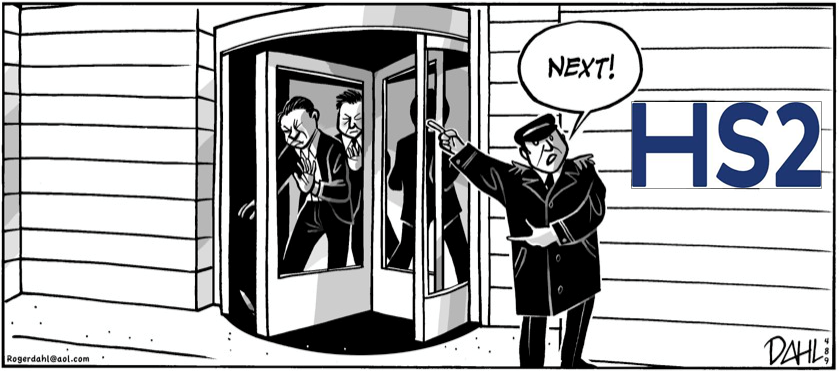When Allen Cook announced his resignation as HS2 Chair in February 2021, you’d have thought finding a replacement for a project which will cost over £100 billion would be a high priority for the Department for Transport.
But earlier this week, the New Civil Engineer wrote that there was still no replacement for Cook who left the HS2 board at the end of July.
 What’s more, according to Construction News
What’s more, according to Construction News
“A spokesperson for the department declined to confirm if interviews had taken place and added that there was no deadline for a replacement to be appointed.”
You can see the details for yourself on the Cabinet Office website. According to that, there hasn’t even been a ‘panel sift’ of CVs, suggesting that maybe the Permanent Secretary of the Department of Transport (Bernadette Kelly) and the Second Permanent Secretary of her HM Treasury haven’t found time in their diaries to sort through them. Or, alternatively any of the people who might be qualified for the role can see what a turkey HS2 is and don’t want to be associated with it, so there are no CVs to sift.
Cook was the replacement for Terry Morgen, also Chair of Crossrail, who lasted just five months as HS2 Chair in 2018, before being pushed out in December 2018. That’s roughly when Crossrail should have opened, except all the problems had been covered up (Crossrail are currently hoping for 2022).
Finally
This is the beautiful moment at @CommonsTrans when new @HS2Ltd Chairman @allancook1949 realised the business case for #HS2 is “disingenuous”, because they’ve fiddled the figures by adding in supposed benefits without including the associated costs #StopHS2 https://t.co/ZiMnTQAQ2W pic.twitter.com/cWx4lNRCBf
— Stop HS2 (@stophs2) March 14, 2019

The West Coast Mainline currently has 40 free freight paths per day.
HS2 claim to add 20 freight paths per day, through unspecified means. (Freight cannot replace the cancelled intercities, because the intercities are on the fast lines and freight must run on the slow lines.)
At Euston, peak freight hour coincides with peak passenger hour.
https://www.keymodernrailways.com/article/between-lines-41
1) The BCR of 2 was calculated when the cost was £56bn. Now the official cost is twice that, the BCR is 1.
For infrastructure projects, the returns-to-cost ratio should be 4 or more to proceed.
2) The benefits are not generated returns, they are cost savings. Very different. (Journey time saved translated to cost assuming all travel is for business charged at high rates.)
3) Wider economics benefits are cost savings of migrating industry to London. (Job losses elsewhere.)